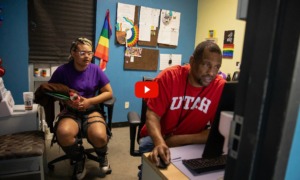Linda Jucovy, Wendy S. McClanahan
Public/Private Ventures
80 pages. $10, free download.
How can homicide among urban youth and young adults be reduced? When several Philadelphia agencies and organizations came together in the Youth Violence Reduction Partnership (YVRP) in 1999, 63 percent of local accused killers were between ages 12 and 24, and 10 percent were 12 to 17. Forty percent of the victims were also young; almost nine out of 10 died from gunshot wounds. In the poorest neighborhoods, where nearly half the city’s homicides occurred, YVRP targeted young offenders from ages 14 to 24 who were on probation and at high risk of committing violence or becoming victims.
Based on a Boston initiative, YVRP provides intensive supervision and support of these youth partners. Probation officers and community street workers form strong partnerships, visiting each youth on his home turf about a dozen times a month to steer him away from risky behaviors. Police officers go along on some visits. Street workers mentor their youth partners, connecting them with education, job training, mental health or substance abuse treatment, after-school programs and other opportunities.
Collaboration involves the mayor’s and district attorney’s offices, probation and police departments, youth nonprofits, independent meeting chairmen and record-keepers, as well as schools, juvenile residential facilities and other services. This manual offers a clear blueprint for how to coordinate the complex partnership, from planning and funding to training and operations, explaining staff roles, procedures, forms and communications that make it work.
After seven years of fine-tuning, Philadelphia’s YVRP program has reached more than 1,800 young people, most of whom avoid violence during their average participation time of eight months. Youths who stay out of trouble and involved in useful activities are “positively discharged”; records are kept so that if they are arrested again, they will return to YVRP.
Although a final evaluation is pending, data suggest that homicides decreased by almost 33 percent among 7- to 24-year-olds in districts that participated in YVRP between 2000 and 2006. This successful program is expanding in Philadelphia. (215) 557-4400, http://www.ppv.org.






























